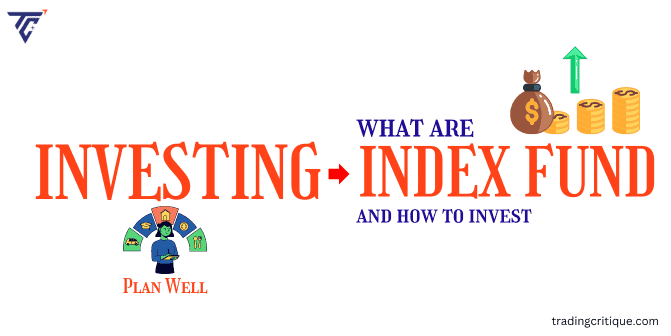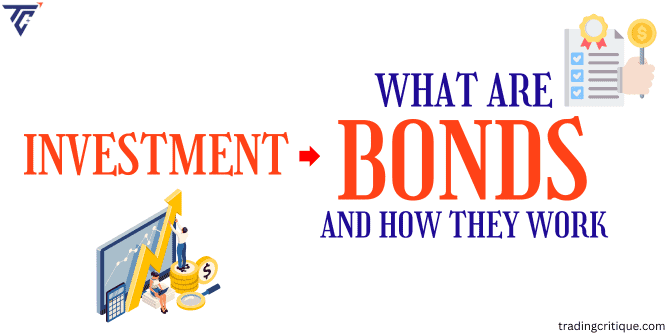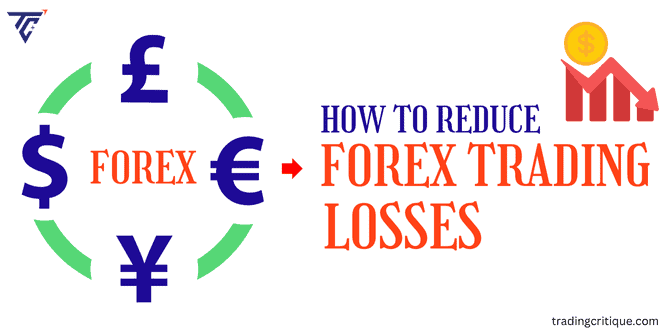What is an Index Fund and How to Invest in? [Expert Guide]
Index funds work wonders! Want to learn more about them and how to invest? Let’s see briefly in this guide.
Quick Insights
Index funds are a type of investment that tracks a market index.
Generally, lower costs than actively managed funds prevail.
A good option for beginners and investors seeking a hands-off approach.
What are index mutual funds?
An index fund is a collection of investments that follows the performance of a group of companies or a market index. For example, the S&P 500. It is like a large basket of investments that mirrors the performance of these selected companies. Instead of choosing individual stocks, the fund follows preset rules set by companies like S&P Dow Jones Indices.

It’s low-maintenance for investors because they don’t need to constantly analyse stocks. Index mutual funds often perform well over time, which is why famous investors like Warren Buffett and John C. Bogle recommend them.
Many investors prefer index funds because they tend to do better in the long run compared to other types of funds.
What is an index fund and how does it work?
- It is a type of mutual fund or exchange-traded fund that holds pieces of lots of companies.
- When you invest in an index fund, your money gets spread out to buy tiny pieces of all the companies in that group.
- This means you're not just investing in one company but in many at once, reducing your risk.
- If one company does poorly, it's not a big deal because you own a little bit of many companies.
- They are tied to big groups of companies that tend to do well over time.
- They're considered safer than just buying individual stocks because they offer diversification.
- For example, the S&P 500, a popular index fund, has historically made about a 10% average yearly return for investors, but future performance is not guaranteed.
Types of index funds
Market capitalization index funds
These funds allocate investments based on the market capitalization of companies. Larger portions of the fund are invested in large-cap companies, with smaller portions allocated to small-cap companies.
Investors with a long-term horizon might favor these funds as they offer exposure to smaller companies with the potential for higher returns.
Earnings-based index funds
These funds are based on companies’ profits and are divided into growth and value indices. Growth indexes include companies expected to generate profits faster than the market average, while value indexes consist of companies trading at lower prices relative to their earnings.
Broad market index funds
These funds track a wide swath of the stock market, offering investors exposure to a large variety of stocks and bonds. They are known for their low expenses and tax efficiency, making them attractive to investors seeking broad diversification.
Global index funds
Global index funds track indexes not limited to any single country or stock market, providing exposure to international companies, including those in emerging markets.
Bond-based index funds
These funds invest in a mix of short, intermediate, and long-term bonds, providing diversification and steady returns. They are popular among investors seeking regular income.
Benefits of index funds
- Over the long term, many index funds have outperformed actively managed funds, especially when considering fees and expenses.
- It replicates a market index, investors know exactly which stocks or assets are held in the fund, providing transparency.
- They aim to match the performance of a specific index, providing a steady return over time rather than trying to beat the market.
- It typically has lower turnover rates, resulting in fewer capital gains distributions, making them more tax-efficient compared to actively managed funds.
- By mirroring the performance of a market index, it offers diversified investment options, allowing investors to participate in overall market trends.
- It has lower fees compared to actively managed funds because they don't require extensive research or frequent trading.
Are index funds low-risk? Although they provide benefits such as reduced risk through diversification and consistent long-term returns, they are also susceptible to market fluctuations and lack the adaptability of actively managed funds.
How do you invest in index funds?
How to open an index fund? Investing in an index funds requires a simple process.
- Define your investment goals: Consider your time horizon and risk tolerance. It is suitable for long-term goals and those with a moderate risk appetite.
- Research index funds: Understand the different types of indexes (e.g., S&P 500, small-cap) and their corresponding index funds. Consider factors like expense ratio, diversification, and your investment goals.
- Choose an investment platform: Select a brokerage or platform that offers the index funds you want. Consider factors like fees, fund selection, and tools.
- Open an investment account: What is an index account? Choose a brokerage account, IRA, or Roth IRA depending on your needs. It allows you to buy and sell shares. Consider factors like commission fees, fund selection, and trading tools.
- Fund your account: Transfer money from your bank account to your investment account.
- How to buy index funds? You can buy directly from a mutual fund company or through a brokerage. Consider things like the selection they offer, how convenient it is for you to use their services, and any fees they might charge for buying or selling funds.
- Buy shares of the index fund: Decide how much to invest (dollar amount or number of shares) based on your budget and the fund's share price.
- Monitor your portfolio periodically: Review your fund's performance and ensure they align with your goals. Rebalance your portfolio if needed.
How do you make money with index funds?
It offers a straightforward way to make money by tracking the performance of a market index, such as the S&P 500. As the index grows over time, so does the value of your investment in the fund.
Additionally, some stocks within the index pay dividends, providing you with additional income. Typically have lower fees compared to actively managed funds, allowing more of your returns to stay in your pocket.
Are index funds risk-free? It follows a market index and isn’t actively managed, so they’re not as up and down as funds that are managed by someone. That means they’re safer. When the market’s doing well, these funds usually make good returns.
Conclusion
It offers a simple and diversified investment approach by mirroring the performance of a specific market index.
Investing in index funds provides a straightforward and low-cost way to diversify your portfolio and potentially achieve long-term financial growth.
With their simplicity, transparency, and historically strong performance, index funds are a wise choice for both novice and experienced investors.
Pro Tip
Enhance your trading success with our trusted Forex brokers! Stay informed about CFDs, forex, stocks, and cryptocurrencies. Utilize authentic broker reviews to make intelligent trading decisions.
Frequently asked questions
1. What is an indexed savings account?
An indexed savings account is a type of savings account that follows the performance of a specific financial market index, like the S&P 500. It’s a low-cost, passive way to invest that aims to match the market’s returns over time without the need for actively managed strategies.
2. Is index fund good for beginners?
Yes, it is good for beginners because they’re easy, cheap, and give you a lot of different investments at once. They usually do well and cost less than other types of funds. Plus, you’ll hear about them in the news, so you can learn more about how the stock market works.
3. How do I buy an index fund?
You can buy directly from a company that handles mutual funds or through a brokerage. It’s the same for exchange-traded funds (ETFs). ETFs are like small mutual funds that you can trade like stocks anytime during the day.
4. Do index funds lose value?
Yes, it can lose value, especially when the whole market goes down. If the big index that the fund follows drops, the value of the index fund will likely drop too.
5. Are index funds good for new investors?
Absolutely! Index funds are perfect for new investors. They’re straightforward, affordable, and track the overall market’s performance, making them a low-risk option.
6. Is it safe to only invest in index funds?
Yes, investing solely in index funds can be a safe option for many investors. They offer diversification, low costs, and typically mirror the performance of the market.
However, it’s important to consider factors like risk, returns, expenses, and tax implications before making any investment decisions.
7. Are index funds safer than stocks?
Yes, index funds are generally safer than investing in individual stocks. They track a mix of stocks or bonds, which helps spread out risk. This diversification can boost the potential returns of your investment while lowering the overall risk.
8. How long should you hold index funds?
Holding for at least seven years for the best results. They can fluctuate in the short term but tend to average out over time.
9. Are index funds safe during recession?
This can fluctuate during recessions like any investment, but they’re generally safer due to diversification. They’re designed for the long term, so short-term downturns shouldn’t deter investors.
10. What is the average return on index funds?
The average return on index funds for investors with an investment horizon of 7 years or more is expected to be in the range of 10-12%.
11. Are Index funds really worth it?
Yes, it can be worth it for long-term investments. If you prefer a hands-off approach and want to avoid the hassle of picking individual stocks, index funds offer diversification and lower fees.

Subscribe to
Our Newsletter
Latest Posts
How to Trade Forex | Learn 6 Strategies and Tips
Discover the world of forex trading with our comprehensive guide. Learn essential...
Read MoreFP Markets Review 2024: Everything You Need To Know
Founded in 2005, FP Markets is a leading online broker renowned for...
Read MoreHow to Invest in Ethereum in 2024 – Simple Guide for Beginners
Ethereum is a decentralized blockchain platform that enables smart contracts, enabling secure,...
Read MoreIs Cryptocurrency a Safe Investment? What You Need To Know
Investing in cryptocurrency involves selecting the right cryptocurrency and securely storing your...
Read MoreHow to Read Forex Charts for Beginners • Simple Methods
Traders look for the currency pair price movements, their patterns, and their...
Read MoreBonds: What it is, Types of Bonds & How they Work (2024 guide)
Are you seeking for safe investment with predictable returns? Our 2024 guide...
Read MoreWhat are The Best Crypto Trading Strategies for Beginners in 2024?
Unsure about choosing the best trading strategies for beginners in 2024? This...
Read MoreForex Pairs: How They Work, How To Read, Examples
Forex pairs are combinations of two different currencies that are traded in...
Read MoreBest Ways to Avoid Losses in Forex Trading
Foreign Exchange – Forex market is the world’s largest financial market in...
Read More









